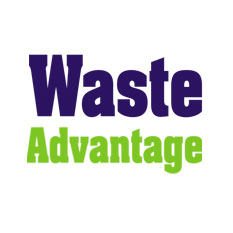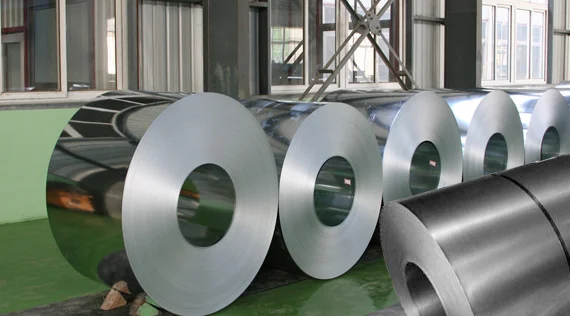Why Catalytic Capital is Critical to the Future of the Recycling Industry
Waste & Recycling | 2023-10-04 00:02:20
Catalytic equity can help close capital gaps for companies that are fundraising.
SEATTLE (Waste Advantage): The term ‘catalytic capital’ may not be a familiar one, but it’s an important source of financing for the environmental services and recycling industry, and a key accelerant for the circular economy at large. As circularity grows in North America, a plethora of companies and organizations are developing circular solutions and business models that reduce waste and advance natural resource optimization, and they require capital for growth. Many U.S. municipalities are expanding recycling services, and recycling technologies, reuse solutions and material innovations are on the rise.
Yet most capital today is still allocated to the linear “take-make-waste” economy that relies on the extraction and disposal of finite resources. This finance model is based on short-term financial objectives and investments that don’t take negative externalities or climate risks into account. Traditional capital also lacks the risk tolerance needed for new solutions, especially those that are capital-intensive and have yet to identify a path to scale. The result: many circular solutions that need the most funding–including materials recovery facilities (MRFs), recycling technologies, novel business models, or municipalities developing recycling infrastructure and services–are still underfunded.
Why catalytic capital?
Amidst an increasingly urgent need to eliminate waste and address the climate crisis, identifying the right financing instruments and partners is important to setting programs, projects and organizations up for success. Catalytic capital helps fill an investment gap because its flexible and risk-tolerant structure allows for capital to go further, opening access to funding and accelerating the flow of additional capital from traditional investors, such as pension funds and investment banks. These strategies take a long-term perspective on building a profitable and sustainable future.
For nearly a decade, Closed Loop Partners, an investment firm focused on the circular economy, has been deploying capital into solutions that reduce waste and keep materials in play. This includes catalytic capital deployed through funds in their Infrastructure Group, supporting collection, sortation, processing, end-manufacturing and enabling technology projects in North America (or those looking to expand into North America). The Closed Loop Infrastructure Group has financed more than 45 projects to date, increasing recovery rates of recycled material and improving feedstock, material quality and quantity.
What does catalytic capital look like in action?
In practice, catalytic capital takes many forms; it is designed to meet the needs of different organizations that require capital to accelerate their growth. For example, the Closed Loop Infrastructure Group was once focused only on loans to municipalities, organizations and private companies, but has since expanded to catalytic equity investments, as well as new products on the lending side.
Through its lending business, the Closed Loop Infrastructure Group structures loans that provide growth capital but, in many cases, do not require businesses to give up equity or ownership. Informed by the commodity market cycles, these solutions can provide organizations the flexibility to navigate volatile macroeconomic conditions–whether that be pricing volatility for recyclable materials, inflation or rising interest rates. Across a range of loan types, impact can be unlocked in different ways:
1. Secured loans
For the construction of new facilities and launch of new projects, secured loans can serve as an accelerant and platform for further expansion. Myplas is a mechanical recycler of high-density (HDPE), low-density polyethylene (LDPE), and polypropylene (PP) in South Africa. In 2021, the company saw an opportunity to leverage their experience to expand into the U.S. and approached the Closed Loop Infrastructure Group for financing. Secured by equipment, the loan was critical to the capital stack required for the construction of the greenfield facility in Minnesota. Financing from the Closed Loop Infrastructure Group mobilized private capital from other sources and resulted in new processing capacity for both LDPE and HDPE. Prior to the facility coming online, materials were either hauled hundreds of miles or were landfilled. The opportunity to support the development of a regional end market for LDPE and food grade HDPE were key to the team’s decision to finance the project.
2. Unsecured loans
The flexibility of catalytic capital allows loans to be structured to meet the specific cash flow needs of the prospective borrower and project. In certain cases, to attract other sources of capital, financing may not be backed by an asset or may not be secured at all for a period of time. Other mechanisms are instead utilized to meet an organization’s needs, and loan pricing is adjusted accordingly.
3. Bridge financing
Bridge financing is an interim option used to provide short-term liquidity for a company until a long-term financing option can be arranged. In October 2021, a PET reclaimer with processing facilities across the U.S. received lease financing from the Closed Loop Infrastructure Group. Equipment delivery, installation and commissioning were all expected to take place by September of that year but due to circumstances outside of the company’s control and primarily related to global supply chain issues, equipment was further delayed by at least three months. Understanding the importance of the financing for the business, the Infrastructure Group restructured the original lease into a short-term unsecured bridge loan that automatically converted to the lease structure upon delivery of the equipment.
Beyond loans, what role does catalytic equity play?
Catalytic equity can help close capital gaps for companies that are fundraising. The Closed Loop Infrastructure Group supports Series A companies that may have a product with proven market demand and may have already started to generate revenue but need catalytic capital to continue to scale in an economical way. In May 2022, Greyparrot, a leading AI waste analytics platform, closed their $11 million Series A funding round, supported by capital from the Closed Loop Circular Plastics Fund-–one of the funds in the Closed Loop Infrastructure Group. Greyparrot’s AI and machine learning models proved to be a novel solution that helped optimize the recycling value chain, and by working with Closed Loop Partners, the company gained access to a robust ecosystem that includes consumer product goods companies, retailers, material science companies and financial institutions.
Today, the Closed Loop Infrastructure Group targets solutions to improve the circularity of plastics and packaging. With new funds on the horizon, the group will also support solutions to improve end-of-life outcomes for the circular economy, including decarbonization of the recycling industry, food and agriculture waste, electronic waste, and the built environment, to name a few. Leveraging Closed Loop Partners’ network, the Closed Loop Infrastructure Group identifies opportunities to be the connective tissue that accelerates the scale of infrastructure needed to build a robust circular economy.
Courtesy: www.wasteadvantage.com
 By
By 